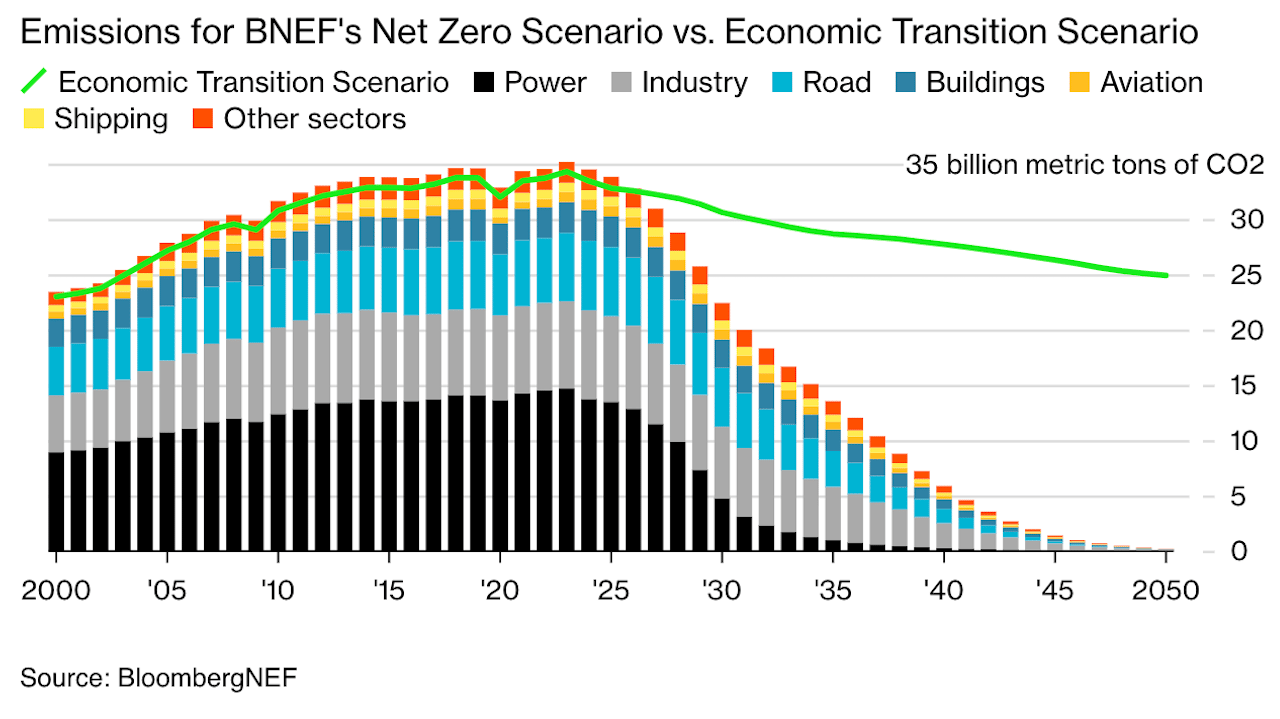Hey there,
Welcome to this week’s issue of Climate Tech Canada, where we break down the latest in climate tech.
Researchers might have just found a new carbon removal pathway: bison-based carbon capture. A herd of 170 bison reintroduced in Romania could help store an extra 54,000 tonnes of CO2 every year. A true nature-based solution.
A quick note: we’ll be switching our email provider from Substack to Beehiiv next week to level up the reader experience. It should be a smooth transition, but you may need to check your spam folder if you don’t get next week’s issue!
This week in climate:
TerraFixing brings carbon capture to the North
HTEC lands CIB financing to build out hydrogen infrastructure
New: Community asks
Let’s go!
TECH
TerraFixing brings carbon capture to the North

Source: Yellowknife Online
TerraFixing signed a $10M commercial agreement with independent power producer Tugliq Énergie to develop and deploy two of its direct air carbon capture (DAC) units in Canada’s far north. The agreement also coincides with the company’s $1.6M seed round which closed at the beginning of May and was led by the founders of Tugliq.
Tugliq, which specialized in renewable energy and storage for remote regions, will operate the DAC units in northeastern Quebec.
The tech: Based in Ottawa, TerraFixing is developing direct air carbon capture specifically tailored for cold climates. Their process uses readily available industrial materials that they say allow for CO2 to be captured with minimal energy inputs when operating at low temperatures.
TerraFixing was recently named an XPRIZE Carbon Removal Top 100 Finalist.
Why it matters: Carbon capture is key to lowering net emissions in the atmosphere and net-negative emissions in the long-term, while offsetting the ongoing emissions from industries that are hard to decarbonize. To meet the goals of the Paris Agreement, several gigatonnes of CO2 will need to be removed every year.
But one of the biggest hurdles to scaling carbon capture is cost, with costs needing to fall to $100 or $50 per tonne. A system that can cut costs by operating more efficiently using cold temperatures could be a step towards that goal.
What’s next: TerraFixing plans to use the fresh capital to develop and deploy its carbon capture units and expand their team and lab space at the University of Ottawa.
NEWS
⏳ Net-zero by 2050 still within reach

The world can still reach net-zero by 2050 but more aggressive action is needed to get us there.
What happened: Bloomberg’s annual long-term energy and climate scenarios found that an economics-driven approach to tackling climate change will put the world on course for 2.6C degrees of warming. This pathway relies solely on economically competitive technologies.
But if governments double-down on supporting emissions-reducing technology, that could be limited to 1.75C degrees, just above the Paris targets of 1.5C.
The difference between these two pathways? About $34 trillion or 19% more in total than the economics-driven approach. The net-zero pathway is expected to cost about $215 trillion by 2050 to stay near the 1.5C degree target.
In context: While it might seem like a high price tag, the business-as-usual scenario will also carry dramatically higher costs on the loss and damages side of the equation. The most recent models estimate between $19-$59 trillion annually by 2050.
The report highlighted several key levers to accelerate climate action:
Every car sold after 2034 needs to be electric
Carbon capture needs $6.8T of investment to offset industry and energy
Power grid projects need $1T per year in the 2040s
For every dollar invested in fossil fuels, $3 needs to flow to low-carbon energy
Why it matters: we’re now halfway to 2050, with just 25 years left. And while it’s a short window for major transitions across industries and a high price tag, the cost of staying on our current path will be orders of magnitude higher.
CLIMATE CAPITAL
⛽️ Vancouver’s HTEC secured a $337M loan from the Canada Infrastructure Bank to speed up the deployment of its hydrogen production and refuelling infrastructure in B.C. and Alberta.
⚡️ Recurrent Energy, a Guelph-based subsidiary of Canadian Solar, secured up to €1.3B in financing to expand its renewable energy projects across Europe.
☀️ Thirty-five First Nations are receiving $9.8M from the federal and B.C. governments to develop clean energy projects and transition off of fossil fuels. The projects include wind, solar, energy storage and district energy.
💵 VulcanX Energy and Curat Innovations each landed $75K from the B.C. Centre for Innovation and Clean Energy’s program for B.C.-based ventures that recently graduated from university entrepreneurship programs.
VulcanX is developing technology to produce hydrogen and solid carbon from natural gas.
Curat is tackling emissions from organic waste with a new processing technology that reduces methane and emissions from transporting waste.
MILESTONES
💨 Reconciliation Energy Transition (RETI), a low-carbon project developer that fosters material Indigenous ownership, is teaming up with Japan’s Sumitomo Corporation to develop a carbon transport and sequestration hub east of Calgary.
🌊 Tidal power developer Occurrent Power rebranded and brought in a new CEO to land new funding and start production in the Bay of Fundy.
🔋 Potentia Renewables won a contract from Ontario’s energy system operator to deploy Canada’s largest battery energy storage system.
🧱 CarbiCrete will generate carbon credits from its low-carbon concrete solution through a partnership with climate solutions provider 3Degrees.
🪙 A Quebec biochar project backed by Quebec’s Airex Energy and Groupe Rémabec and France’s Suez sold 36,000 tons of carbon credits to Microsoft.
🚛 Geotab will provide vehicle data to Rivian commercial vehicles using its MyGeotab platform, giving fleet managers insights into their fleet performance.
🌲 Nature-based carbon removal developer Wild + Pine broke ground on the largest afforestation project in Western Canada, restoring 3,700 acres of land.
IN THE NEWS
🔭 Climate foresight: Biodiversity loss and overwhelmed emergency response from natural disasters are two of the most pressing issues Canada could face over the next decade. That’s according to Policy Horizons Canada, a federal agency tasked with helping the government build long-term awareness. While not explicitly called out, climate change is a driver for both.
🛫 Aviation innovation: Quebec launched a new innovation zone, Espace Aéro, focused on decarbonizing aviation and improving safety. Boeing is providing $240M of the $415M total investment to back advancements in electrification, advanced materials, electric drone taxis and more.
⛔️ Pathways exemption: The Pathways Alliance asked for a slew of exemptions for its planned Alberta carbon capture and storage project, including support for 50% of operating costs and assurance that the projects would not require a federal environmental assessment. The requests, obtained through freedom of information requests, show the extensive subsidies the oil sands group is pursuing.
BIG PICTURE
A new advance market commitment for nature-based carbon removals launched, backed by Microsoft, Meta, Google and Salesforce.
Airbnb will offer hosts a discounted option to install home EV chargers in a new partnership with ChargePoint.
Conservation International announced support for nature-based credits to help closer the funding gap to reverse nature loss.
U.S. lawmakers are asking the Justice Department to investigate whether the oil industry misled the public about the impact of fossil fuels on climate change.
Battery recycler Redwood Materials will recycle battery scrap material from GM’s battery plants.
COMMUNITY ASK
JPlug is looking to partner with real estate developers and property management groups to secure up to $1 million in OVIN funding to adopt EV charging infrastructure in multi-unit residential buildings. Learn more here.
EVENTS
🗓️ What could an Ottawa Climate Week look like?: Join the Climate Leap crew as we debrief on SF Climate Week and explore what we’d want to see from an Ottawa Climate Week. May 30th, Ottawa.
🗓️ Building Lasting Change: Hosted by the Canada Green Building Council, this event brings together the business and technical expertise needed to accelerate low-carbon, sustainable and resilient building. June 5-6th, Toronto.
🗓️ Earth Tech 2050 Demo Day: Listen to pitches from Foresight Canada’s Earth Tech 2050 cohort across carbon capture, energy, agriculture, and more. June 5th, online.
WORK ON CLIMATE
Check out the job board for newly posted roles from Canadian climate tech companies working on transit, EV charging, low-carbon concrete and more!
➡️ Hiring? List your posting here.
Enjoyed this issue? Help us reach more people by sharing it with someone in your network. And if you’re that someone, subscribe below.
Thanks for reading,
Justin
WORK WITH US
Want to get in front of 400+ climate tech founders, investors and tech operators? Get in touch [email protected]
